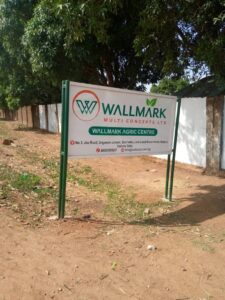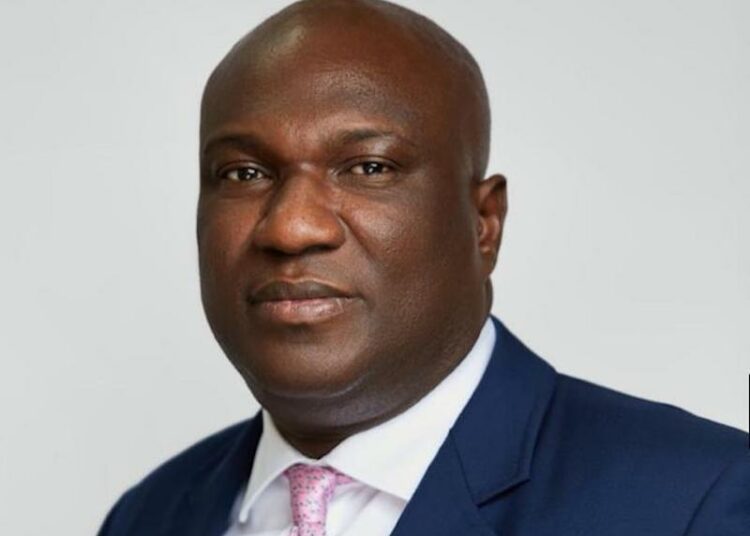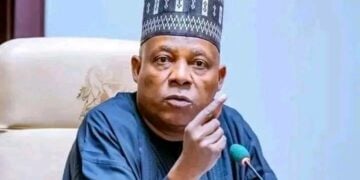This is the second in my article series to narrate a tortuous three-year journey and five applications that unveiled the fraud in the Anchor Borrowers’ Programme (ABP) of the Central Bank of Nigeria (CBN). If you have read the first article, you will quickly grasp this continuation of the harrowing tale of how a cabal in the CBN sabotaged President Muhammadu Buhari’s rice revolution and defied the edicts to make it a success.
Our third application for the Wet Season Maize was submitted at the CBN on February 22, 2021. Because of our sore experience with the Rice Champion, who unjustly blacklisted Comerel Farms, we had to use another company for the Saminaka project. Any person who evaded the CBN Governor’s orders emanating from His Eminence’s intercession in this and any other case must be acting on the strength of the unknown. Therefore, Wallmark Multi-Concepts Limited was the company presented for the maize farming programme in Saminaka. The team was Comerel’s, the one that worked on the ill-fated Sokoto Wet Season Rice project, but with the addition of two experts: one was the Manager of the farm of a former governor of Kaduna State; the other a consultant of repute with World Bank agricultural projects in Nigeria.
We established an elaborate project and quickly became the go-to company for all farmers in Saminaka and its environs, one of the largest maize-producing areas in Nigeria. More than ten thousand genuine, verifiable farmers enlisted with us. On April 8, 2021, after making its due diligence part in the project, our Participating Financial Institution (PFI) wrote a letter to the Director of the Development Finance Department of the CBN to inform him concerning Wallmark’s application and the Bank’s readiness “to partner with” us “for the disbursement of the funds under” the ABP.
“As an integral part of our due diligence responsibility as a PFI”, affirms the letter, “we have visited the customer’s farmland to confirm suitability for farming the chosen commodity. Also confirmed is the customer’s access to the farmland and receipt of acceptable title documents of the property pledged as collateral for the loan.” This meant again that our capacity was never questionable. On its part, the CBN visited our farms and facilities for independent inspection on several occasions. It corroborated the PFI on our capacity. The application was approved, or so we were made to believe.
Before the approval, we had finished the distribution of inputs to the farmers, planting had been completed, and post-planting exercises were already in top gear, with every phase of the exercise recorded on video and sent to the CBN. When the inspection team came again on July 19, 2021, its members marvelled at how we unprecedentedly deployed satellite technology to work wonders. Our new technology was built on satellite data (NDVI) for spatial analyses and Geographic Information System (GIS). Doing it the modern innovative way will enable us to map field data, monitor the farms remotely, and provide valuable information to relevant stakeholders with utmost transparency. In essence, the CBN can monitor our farms and developments from anywhere. With the aid of television monitors, drones were also used to survey the entire length and breadth of our farms. The ArcGIS dashboard with details of farmers and a real-time map of 8,000 hectares of farms (at the time) was shown to the team.

The CBN team has never seen anything like this. They were certain their superiors would jump at the technology for the apparent need. The CBN would later request that we grant them access to the Wallmark Dashboard. We gave a brief explanation of the technology and further details of the dashboard instead since there was no date for the disbursement of the funds applied.
“The Wallmark Monitoring Dashboard is an application of geospatial intelligence for precision agriculture – newly deployed by the company for more than fifteen thousand hectares of maize farms under its 2021 wet season farming in Saminaka. The one-stop agro dashboard provides data for accurate, informed decisions while delivering intuitive and interactive data visualisations that give real-time farm information, up-to-date soil and risk analysis, spatial yield calculation and other location-based analytics that help make insightful decisions, visualise trends, monitor farm status, and provide valuable information,” reads the brief about the technology that can end significant frauds in the ABP. Needless to guess why the company introducing it must be persecuted.
On April 21, 2021, our PFI wrote the CBN to release the funds. “Our customer, Wallmark Multi Concepts Limited”, read the letter, “have (sic) requested for a facility under the Prime Anchor Window of the ABP. The facility will be used to cultivate Maize on 10,000 hectares of land in Kaduna State using the Economics of Production (EOP) amount of N227,203 per hectare.
“We, therefore, request for the release of N2,272,030,100,00 (Two Billion, Two Hundred and Seventy-Two Million, Thirty Thousand One Hundred Naira Only) for on-lending to Wallmark Multi Concepts Limited.”
The CBN summoned all anchors in 2021 Wet Season farming to an emergency meeting on Monday, August 2, 2021, at its headquarters in Abuja. Even though the meeting was for those anchors whose funds were released, the CBN invited some of those who were yet to have the funds, mentioning Wallmark specifically, to attend. At the meeting, our PFI gave a complimentary account of our performance which was not news to the CBN since its team was there several times. There, we learnt that the approval given was for 5,000 hectares as against the 10,000 applied for (without any reason, indeed not based on capacity) and that the funds have been disbursed to the PFI. Really? We were made to understand that ‘the PFI bears the Credit Risk and therefore must ensure that Wallmark satisfies the Bank’s Assessment Criteria (as if that was not done before the PFI called for the release of the funds months earlier) before the CBN approved funds were disbursed. The CBN appeared to pressure the PFI to expedite action and make all pending disbursements before mid-August 2021.
No disbursement of funds was made to Wallmark.
We were summoned to another meeting at the CBN on Tuesday, September 21, 2021, in a letter signed by the Director of the Development Finance Department himself. During the meeting, where we gave every detail of the current situation in the farms in Saminaka with the audiovisual presentation, the DFO rated our operations highly and gave valuable advice on recovery strategy, the number of Extension Agents (EAs), insurance, warehouses and the need for a software for farm operations for monitoring purposes. We thanked him for his advice and clarified that further delay in releasing the funds would severely affect our recovery efforts. He said our funds would be ready “any moment” and that we should keep the pressure on the PFI.
We’ve got the edge. Get real-time reports, breaking scoops, and exclusive angles delivered straight to your phone. Don’t settle for stale news. Join LEADERSHIP NEWS on WhatsApp for 24/7 updates →
Join Our WhatsApp Channel










